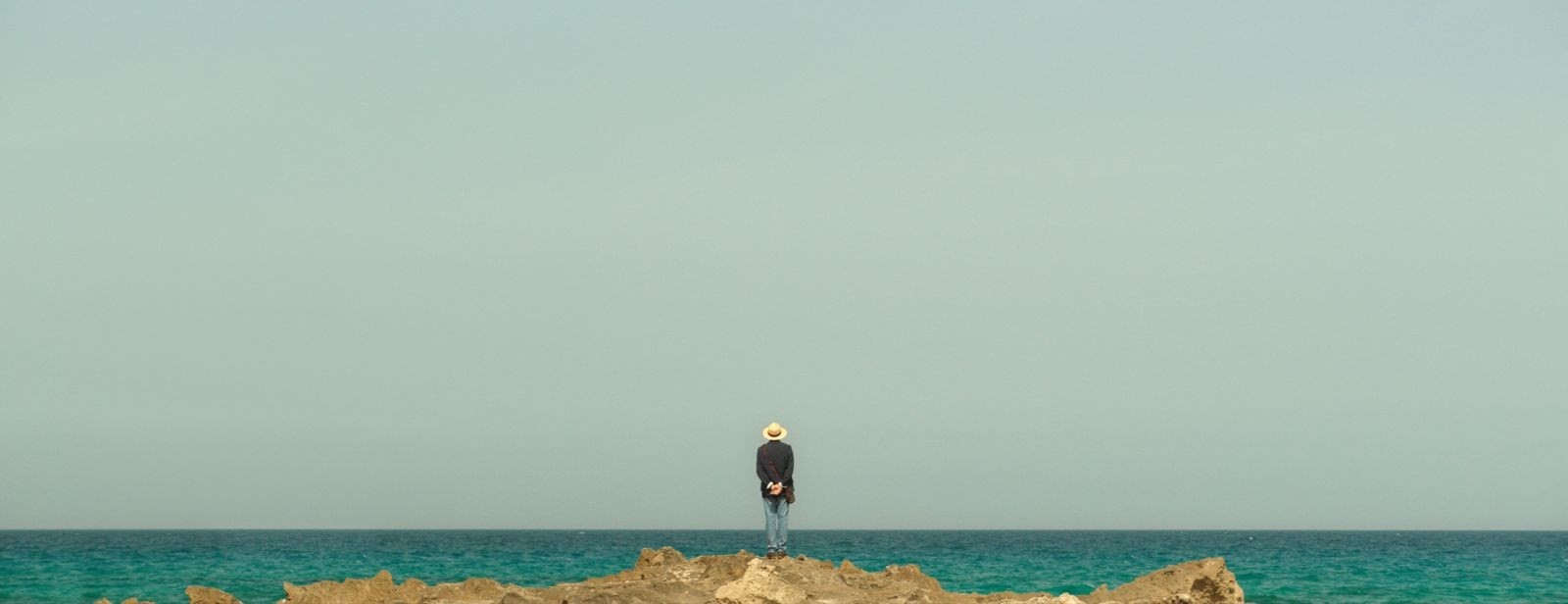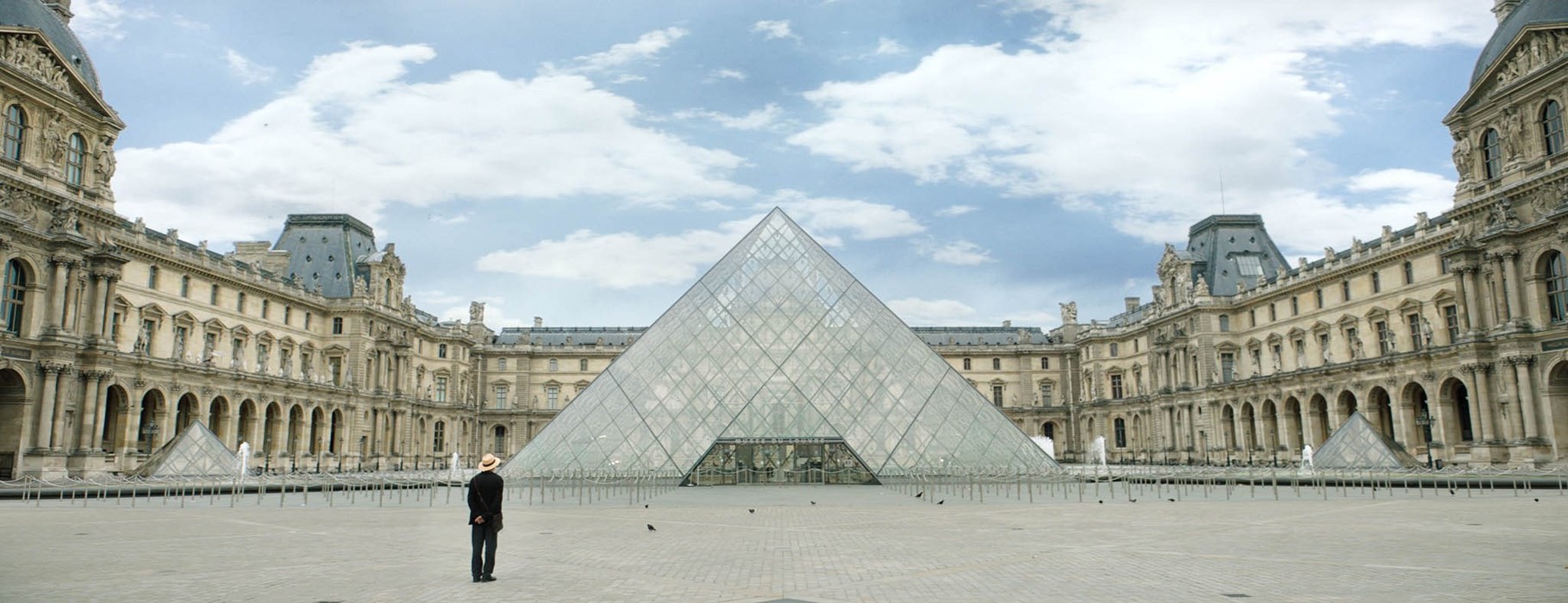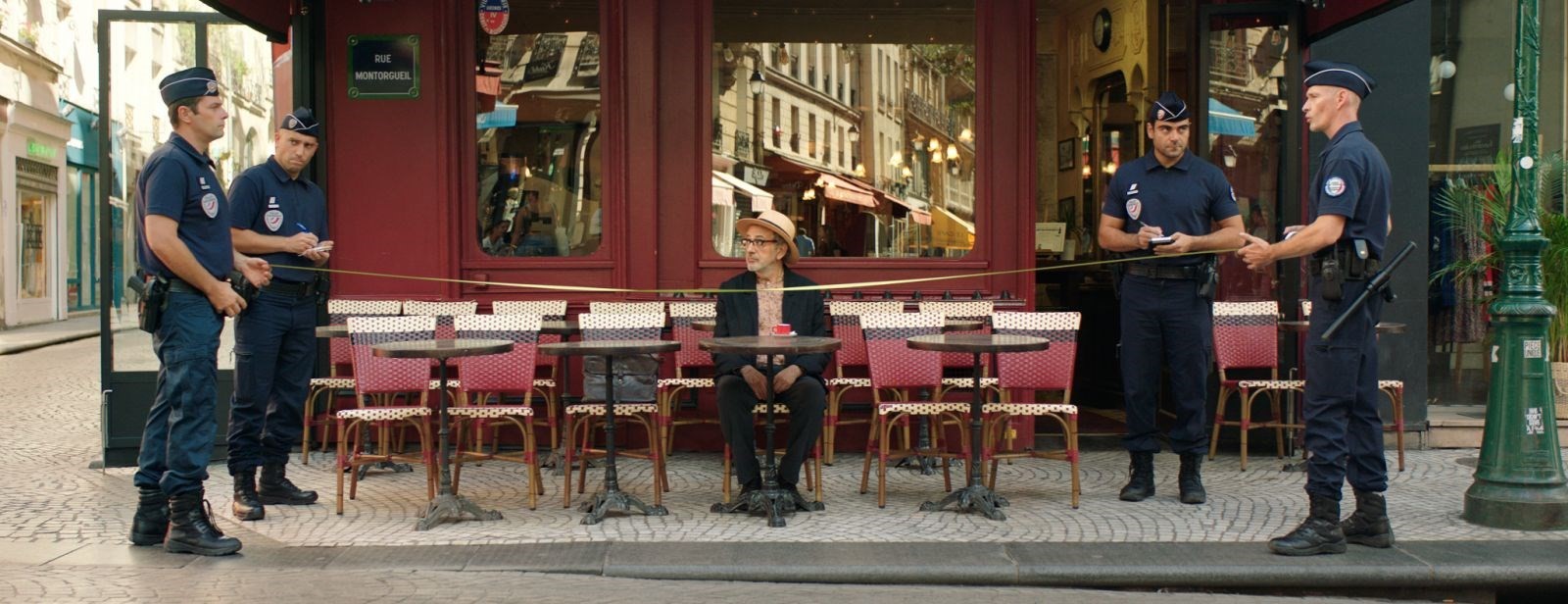The Palestinian filmmaker discusses the sense of “solitary alienation” that catalysed his latest film, It Must Be Heaven, an existentialist comedy about our increasingly globalised world
“It feels strange to think about talking about things other than this,” says Palestinian filmmaker Elia Suleiman, speaking over the phone from his home in Paris. It’s March 20, 2020 and his fourth feature It Must Be Heaven is set to hit cinemas in a couple of weeks – although, as it transpires, the release will be delayed for over a year.
“This”, of course, being the pandemic, the gravity of which is just beginning to sink in. The French capital is four days into its first intense lockdown – a scenario eerily preempted by a segment in Suleiman’s film, which finds its central character wandering around major Parisian landmarks entirely devoid of people. “My wife and I have been receiving ironic texts and photos of the locations empty again,” he says wryly.
Like Suleiman’s other features, the droll, auto-fictional comedy stars the director himself as a near-silent protagonist, who watches as absurd snippets of everyday life unfold around him, his eyebrows rising and falling with amusement, bemusement and sheer disbelief. But while the director’s previous films have centred powerfully on “the surreal texture of life in Palestine under Israeli occupation”, in the words of critic Bilge Ebiri, this time Suleiman takes the action beyond his homeland – to no less political effect.

In this instance, we see his character travel from Nazareth to Paris to New York – all cities that Suleiman himself has lived in – encountering as many similarities as he does differences between his new surroundings and his native country. The result is a razor-sharp critique of our increasingly globalised, and ghettoised, world that is, by turns, hilarious and horrifying. “It’s funny because of the despair,” the filmmaker notes, “because things have never been more desperate.”
The idea for It Must Be Heaven first occurred to Suleiman a decade ago, he explains. “I’m not a typical camera-fetishist filmmaker. I don’t jump from one film to another or constantly invent plots and narratives; I simply wait until there’s a necessity for something to be said.” This story, he says, was triggered by a rising feeling of solitary alienation: “an inner-anxiety of things, of ambiences, of animations of everyday life [that I observed] which seemed to hint at the general global situation in a marginal sense.” Eventually these observations accrued – jotted down by Suleiman in notebooks over the years – until the director felt compelled to transcribe them to film.
“I felt that, possibly, sharing could lead to a sense of consolation,” he muses with the same poetic meditativeness that imbues his films. “I dare not say, ‘ignite hope’, because that was not exactly the mood I was in – there was a period of time where I was beginning to suspect that even hope was an illusion – but one has a sense that films can reduce or relieve some of the inner-violence out of our daily life.”

And there’s no doubt that watching Suleiman’s take on the world is cathartic. It Must Be Heaven’s opening scene sees a Greek orthodox priest knock on a church door with theatrical solemnity in a symbolic bid for his congregation to be let in, only to be met by a stony silence. Right from the start, the message is clear: we’re wreaking our own chaos upon the world, and no greater power is coming to save us.
Suleiman’s films are collages of sorts, made up of incidental scenes such as this. Each vignette resonates symphonically with its counterparts, the lack of dialogue encouraging the viewer to participate in establishing the film’s connecting threads. “I don’t work like a narrative filmmaker,” he explains. “I work more like a painter on tableaux. There’s a certain faith that whatever is being pigmented is some kind of subliminal montage; that the tableaux will actually form some kind of a narrative.”
In It Must Be Heaven, as in his other films, much of the film’s weight lies in the clever, often uncanny choreographing of the scenes: police officers deliver strange dances on segues, or performatively enact meaningless tasks, highlighting their futile pomp; selfish visitors to Paris’ Jardin du Luxembourg go to extraordinary lengths to secure the wrought iron chairs overlooking the central pond, their movements exaggerated à la Buster Keaton.
“I sit in a cafe, watching people pass by, and I get a little hint from the street animation of a potential dance. Then I imagine how it could become this dance; that’s how all the choreography in my films come about,” Suleiman says of this quintessential element of his filmmaking. “I think it’s a culmination of the total experiences that you have in life, of a certain way of looking.”
At the mention of ways of seeing, our conversation turns to the late art critic John Berger, Sulieman’s close friend and mentor to whom the film is co-dedicated. “He gave me a great sense of how to be critically hopeful,” the director says. “I have a heavier dose of melancholy than he did.” One of the last times they talked about hope, he adds, Berger said something that has become somewhat of a “poetic mantra” for Sulieman. “I asked, ‘How can you look at the world with the regard of hope?’ And he said, ‘We are all looking at the world with a sense of hope, except we are looking at it with a scarred eye.’”
This moving sentiment ripples throughout It Must Be Heaven, which, although presenting an undeniably anguished, often disparaging view of the world – “there will be Palestine,” a fortune teller tells Suleiman’s character with great self-assurance in a typically tragi-comic, and particularly pertinent, scene, “just not in your lifetime, or mine” – also offers up discreet glimmers of optimism. The film, which finally arrives on screens this Friday, closes with a scene as potent in its symbolism as the one that opens it: a nightclub filled with young Palestinians, dancing with carefree abandon as the world-weary Suleiman looks on with a small smile.
It Must Be Heaven is in cinemas and online from 18 June 2020.
